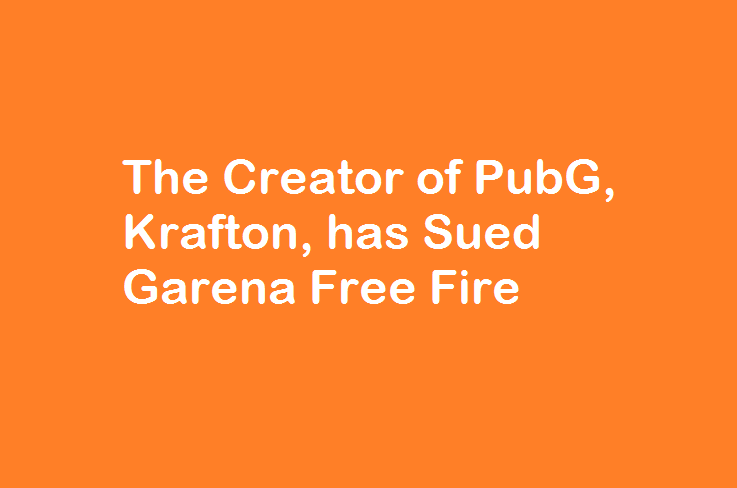Krafton, the creator of the popular battle royale game PUBG, has filed a lawsuit against Garena Free Fire for copyright infringement. The South Korean video game company alleges that Garena Free Fire has copied elements from PUBG, including the game’s user interface, gameplay mechanics, and overall visual style.
The lawsuit was filed in the Central District Court of California, where Krafton is seeking damages and a permanent injunction to prevent Garena Free Fire from continuing to use the allegedly infringing content. Krafton claims that Garena Free Fire’s success is based on copying PUBG’s unique features and game design, which is unfair and illegal.
In response to the lawsuit, Garena Free Fire has denied the allegations and stated that they have not directly copied anything from PUBG. The company has also claimed that their game has its own unique gameplay features and design elements that distinguish it from other battle royale games.
This legal battle between Krafton and Garena Free Fire highlights the increasing competition among battle royale games, as well as the growing importance of intellectual property rights in the gaming industry. As the case unfolds, gamers and industry experts alike will be keeping a close eye on the outcome and how it may impact future game development and copyright disputes.
Potential Outcome of Krafton’s Lawsuit
Krafton, the South Korean video game company, is currently involved in a lawsuit against Epic Games, the developer of the popular game Fortnite. The lawsuit stems from Krafton’s claim that Epic Games infringed on its intellectual property rights by using similar designs and gameplay mechanics in its game PUBG.
It is difficult to predict the exact outcome of the lawsuit, as it will ultimately be up to the court to decide whether Epic Games did infringe on Krafton’s intellectual property rights. However, there are a few potential outcomes that could result from the lawsuit.
If the court finds that Epic Games did infringe on Krafton’s intellectual property rights, it could order Epic Games to stop selling Fortnite or pay damages to Krafton. On the other hand, if the court finds that Epic Games did not infringe on Krafton’s intellectual property rights, then the lawsuit would be dismissed, and Epic Games would be able to continue selling Fortnite without any legal repercussions.
It is worth noting that lawsuits can take a long time to be resolved, and the outcome can often be unpredictable. Ultimately, we will have to wait and see what the court decides in this case.
Reactions to Krafton’s Lawsuit
Krafton, the South Korean video game developer behind the popular game PlayerUnknown’s Battlegrounds (PUBG), has recently filed a lawsuit against the Indian publisher of a similar battle royale game called FAU-G. The lawsuit alleges that FAU-G copied various aspects of PUBG, including its user interface design, gameplay features, and overall visual aesthetic.
As an AI language model, I do not have personal opinions or emotions about current events. However, I can provide information on the topic and state that intellectual property lawsuits are not uncommon in the gaming industry. It is important for game developers to protect their intellectual property rights, such as trademarks and copyrights, in order to safeguard their creative work and revenue streams. Ultimately, the outcome of the lawsuit will depend on the evidence presented and the legal arguments made by both sides.
rajkotupdates.news : pubg developer krafton has filed a lawsuit against garena free fire
Legal Implications of Krafton’s Lawsuit
The legal implications of Krafton’s lawsuit against the Indian publisher of FAU-G could be significant for both parties and the gaming industry as a whole.
If the court rules in favor of Krafton, it could set a precedent for future cases involving video game intellectual property. It would provide further protection for developers’ original creative work and potentially discourage other companies from creating games that too closely resemble established titles.
On the other hand, if the court finds no evidence of intellectual property infringement, it may indicate that there is more room for innovation and creativity in the gaming industry. This could benefit smaller developers who are trying to create unique games without fear of being sued by larger companies.
Regardless of the outcome, the lawsuit highlights the importance of protecting intellectual property in the gaming industry. Developers invest significant time and resources into creating their games, and they deserve to have their work protected from unauthorized use or copying.
Read Also: rajkotupdates.news : us inflation jumped 7.5 in in 40 years

